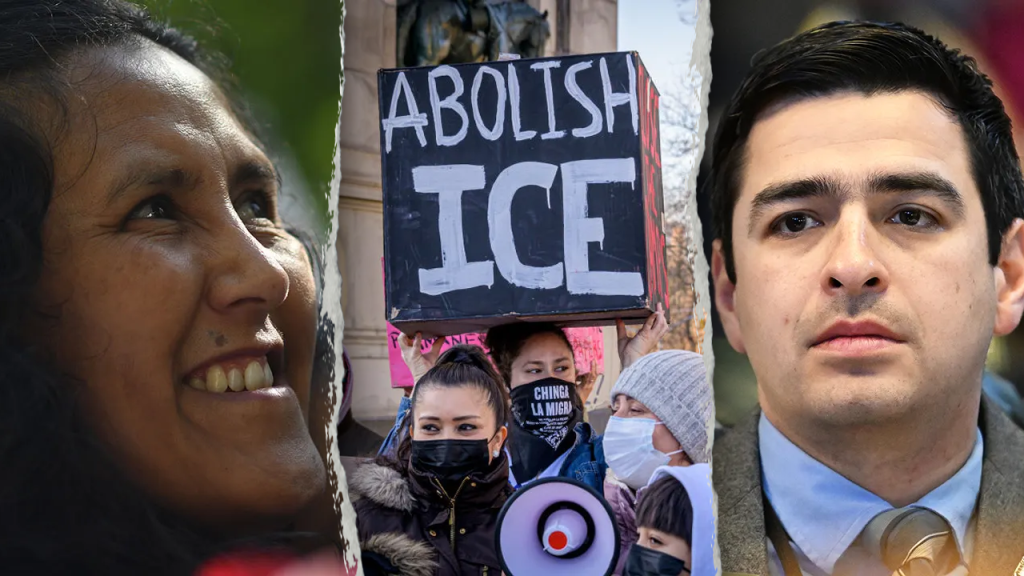A federal court in Colorado has halted immigration officials from deporting prominent activist Jeanette Vizguerra, an illegal immigrant known for her advocacy against the U.S. Immigration and Customs Enforcement (ICE) policies. The ruling, made by U.S. District Judge Nina Wang, is a temporary injunction that prevents local ICE agents from acting on a deportation order while Vizguerra’s case is under review by the 10th Circuit Court of Appeals. This decision comes amidst nationwide debates regarding the U.S. immigration system and its enforcement, particularly within so-called ‘sanctuary’ jurisdictions.
| Article Subheadings |
|---|
| 1) Background on Jeanette Vizguerra |
| 2) The Court’s Ruling and Its Implications |
| 3) Reactions from Colorado Officials |
| 4) Legal Perspectives on the Case |
| 5) The Broader Implications for Immigration Policy |
Background on Jeanette Vizguerra
Jeanette Vizguerra, aged 53, is a Mexican national who has resided in the United States illegally for several years. Her immigration journey has been fraught with complexities, marked by a voluntary departure in 2012 in response to a deportation order, followed by her return to the U.S. just one year later. Since her return, she has become a vocal figure advocating for changes to current immigration laws, including the abolition of ICE. Her activism arose partially from her experiences within the immigration system, and she has garnered significant attention for her public stance against what she terms harsh enforcement practices.
The Court’s Ruling and Its Implications
The recent legal decision by Judge Nina Wang prohibits local ICE agents, specifically Johnny Choate and Ernesto Santacruz, from proceeding with any plans to remove Vizguerra from the country. The ruling serves as a temporary injunction, ensuring that she cannot be deported until the 10th Circuit Court addresses the legalities surrounding her case. This intervention is particularly significant given that it reflects the complexities and tensions surrounding immigration enforcement in Colorado, a state known for its sanctuary policies aimed at providing protections for illegal immigrants. The ruling emphasizes the court’s intention to maintain the status quo while it examines the complex legal questions raised in this case.
Reactions from Colorado Officials
The arrest of Vizguerra by ICE ignited immediate backlash from various political figures and advocacy groups within Colorado. Denver’s Mayor Mike Johnston characterized the operation as political persecution disguised as standard immigration enforcement. His comments reflect a broader sentiment among local Democrats who argue against ICE’s methods and advocate for more lenient immigration laws. Other public officials echoed similar sentiments, criticizing the arrest as an affront to the community’s values, particularly in a state that has implemented measures to protect undocumented immigrants from deportation.
Legal Perspectives on the Case
Legal experts have differing opinions on the implications of this ruling. For instance, Andrew Arthur, a former immigration judge, expressed that the case is fundamentally straightforward. He asserted that Vizguerra’s repeated illegal entries into the U.S. render her subject to removal regardless of her political engagement or activism. Arthur further emphasized that the legal system does not grant immunity based solely on one’s political views or criticisms of the immigration system, suggesting that policymakers and activists should consider the consequences of unlawful actions in their advocacy efforts.
The Broader Implications for Immigration Policy
The ongoing case of Jeanette Vizguerra highlights the fractious debate surrounding immigration reform and enforcement protocols in the U.S. Her situation sheds light on the broader dynamics at play between sanctuary policies and ICE operations, illustrating the challenges faced by states as they navigate federal immigration laws amidst changing political climates. The case may serve as a pivotal point in discussions on legislative changes regarding immigration reform, potentially influencing public opinion and policy decisions at both state and national levels. The outcome of Vizguerra’s appeal could further amplify the discussions about who qualifies for protection under current laws and how jurisdictions balance the enforcement of federal laws with local immigrant rights initiatives.
| No. | Key Points |
|---|---|
| 1 | Federal Judge Nina Wang issued a temporary injunction preventing ICE from deporting Vizguerra. |
| 2 | Vizguerra, a prominent activist against ICE policies, has been in the U.S. illegally since returning in 2013. |
| 3 | The ruling reflects the ongoing tensions between immigration enforcement and sanctuary policies in Colorado. |
| 4 | Reactions to her arrest were strongly negative among local Democrats and advocacy groups. |
| 5 | The case may influence future discussions on immigration reform and enforcement policies in the U.S. |
Summary
The case of Jeanette Vizguerra epitomizes the contentious landscape of immigration enforcement amid evolving public sentiment and policy frameworks. The federal court’s ruling to halt her deportation provides a temporary reprieve but opens the door for further dialogue on the intricacies of immigration law and the role of advocacy. As her case progresses, it will likely stimulate broader discussions about the intersection of public policy, human rights, and immigration reform in the United States.
Frequently Asked Questions
Question: Who is Jeanette Vizguerra?
Jeanette Vizguerra is an activist and illegal immigrant from Mexico, known for her advocacy against ICE enforcement policies in the U.S.
Question: What is the current status of her case?
A federal judge has temporarily blocked her deportation while her appeal is considered by the 10th Circuit Court.
Question: How have local officials reacted to her arrest?
Local officials, particularly Democrats, have criticized her arrest, viewing it as politically motivated and contrary to the values of their communities.


